Hollywood & Spine Archive: Godzilla vs. Kong - Keyes to a Titan Throwdown
An overview of the novelization to GODZILLA VS. KONG, plus an interview with its author, originally published in May 2023.
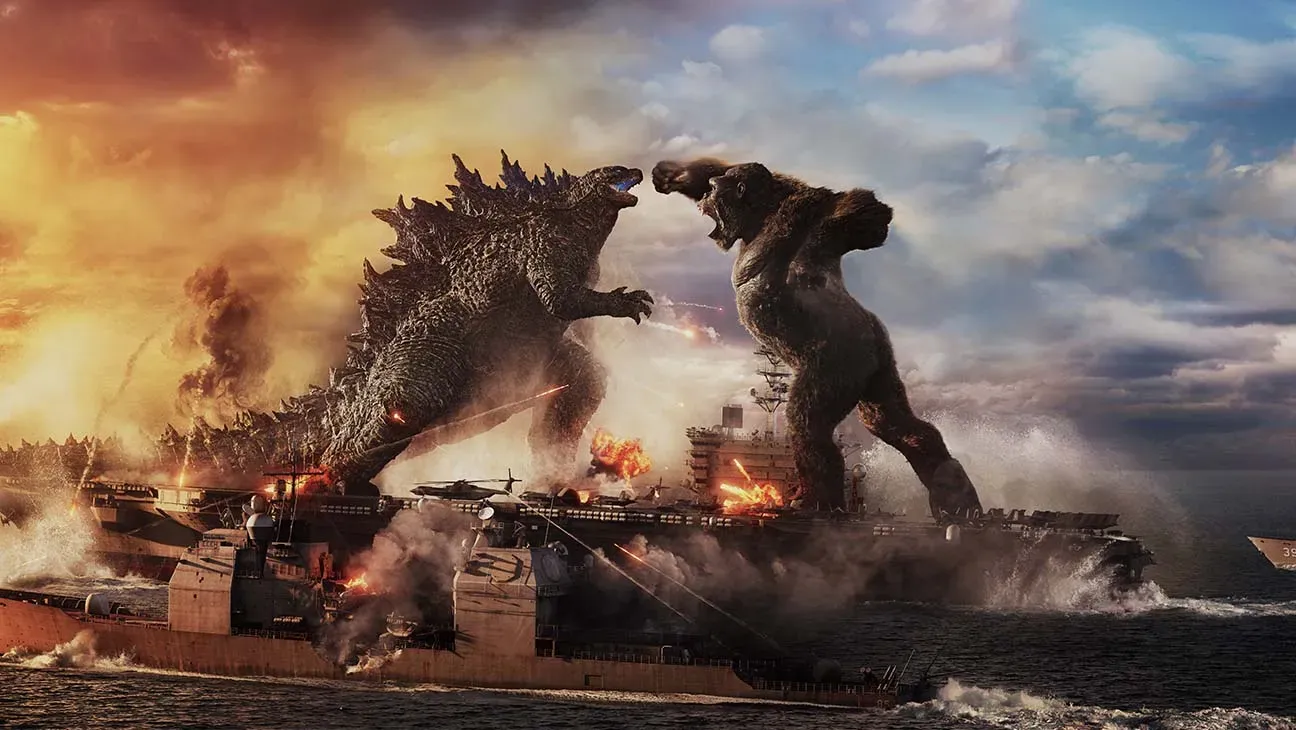
Between another Godzilla x Kong film in America a few months ago, the pretty good Japanese film Godzilla Minus One just before that, and the MonsterVerse TV show Monarch: Legacy of Monsters just before that, I worry if we're a little Godzilla'd out. I recently read Shigeru Kayama's novelization of the original film and would love to find time to get that out for you someday. But this recollection of where the MonsterVerse was a few years ago (just outside of the worst of COVID) will have to do for now.
This one was wistful to re-read, as I think it might have been my first interview for Hollywood & Spine. Balancing two newborns and trying to find a full-time job (and sneaking in some freelance bits here and there when I can), it's not easy to imagine doing another one! Maybe someday. You'll read the "editorial" version covering the novelization first, then the full interview with author Greg Keyes. (Originally published 4/21/2021)
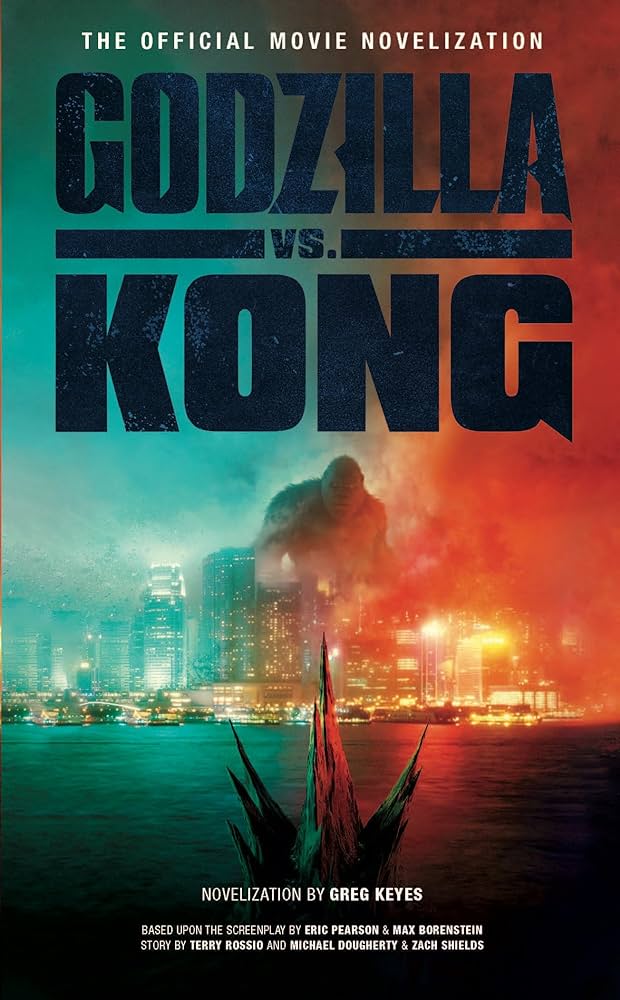
Godzilla vs. Kong by Greg Keyes (screenplay by Eric Pearson & Max Borenstein; story by Terry Rossio, Michael Dougherty & Zach Shields) (Titan, 2021)
The pitch: In a world teeming with large, fantastical creatures called Titans, two of the best-known - Godzilla, a nuclear-enhanced prehistoric creature, and Kong, a huge ape from an ancient island - end up in each other's way.
The author: Greg Keyes is a pro in the fantasy novel and adaptation world. Known for original series like The Age of Unreason and The Kingdoms of Thorn and Bone, he's also written tie-ins for Babylon 5 and Planet of the Apes as well as the novelization of the preceding film in the "MonsterVerse" (2019's Godzilla: King of the Monsters) and Godzilla: Dominion, a graphic novel set between that film and this new one
The lowdown: As the reviews for Godzilla vs. Kong started pouring in, critic Michael Rougeau got some flak for his negative review of the picture for GameSpot. "If you're...expecting a halfway-intelligent script or a set of human characters who act like thinking beings with discernible motivations beyond 'be in X spot so Y plot event can occur,'" he wrote, "you'll be massively disappointed." Fans took umbrage with that assessment; after all, who walked into the MonsterVerse - American films featuring legendary Japanese movie monster Godzilla and fantasy legend King Kong - caring about anything but the big effects-heavy monster fights?
Greg Keyes thought differently. The author of the film's novelization (who was kind to spend some time talking to Hollywood & Spine about this adaptation of 2021's biggest blockbuster) knows readers aren't looking to a Godzilla vs. Kong book to read play-by-play of two kaiju duking it out. He dropped some fantastic detail throughout the spirited read, including details that even the most excited fans may have wondered about the people reacting to the monsters.
A longtime lover of novelizations who helped bring Star Wars' New Jedi Order to the page in the years before Disney bought out the franchise, Keyes says his style - focused on the characters as they experience the action - is intentional. "I try to write from a limited point of view of a character," he explained. "They're unreliable narrators, often - they don't necessarily know what they've seen. They've seen something, but they're not quite sure. There's no omniscience in any of my narration."
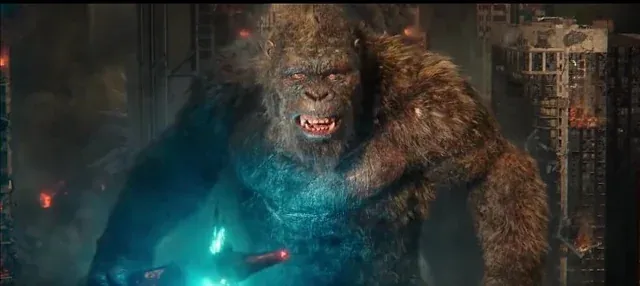
Despite this limited perspective, Keyes' book fills in a lot of the gaps of what's been going on in the Titan-filled planet since Godzilla annihilated King Ghidorah in King of the Monsters. The first few chapters set up the years in between the films: the atomic-breathing beast spent several time getting other giant creatures in line through smaller fights before quietly retiring on top. One particularly notorious beast, a bat-like monster named Camazotz, caused considerable trouble, causing the storm that killed most of the natives on Skull Island and forced the construction of a large virtual pen for Kong as seen in the beginning of the film. But the ape never tussled with Godzilla - the better to not let two alpha Titans come to blows.
Much of this backstory comes from Keyes' own Godzilla: Dominion and Marie Anello's Kingdom Kong, two graphic novels released leading up to the film. While the two didn't compare notes during their writing process, Keyes insisted on incorporating her details into his book. "Her story was crucial to many key points in the novel: the storm coming ashore, the destruction of the Iwi people, the earlier Hollow Earth entry attempts," he said. "In doing novelizations, I feel it's an important part of my job to help all of the tie-in material work together."
Meanwhile, the motives of the film's villainous Apex corporation (a shadowy inverse of the Monarch team devoted to studying the Titans through all the previous films) are given more weight: they're revealed in the novel to be behind the dreaded Oxygen Destroyer that nearly killed the big G in KotM, and wish to assert human dominance back over the planet. (In passages that we wish were true, it's further fleshed out that the Titans' presence has somehow slowed or even reversed man-made climate change.) Two Apex employees, the podcasting whistleblower Bernie (Brian Tyree Henry) and the calculating technician Ren Serizawa (Shun Oguri), get additional details in their character arcs on the page: Bernie is motivated by the death of his wife, a fellow Apex employee killed in a car crash before she could expose the company's wrongdoing, while Ren found his father, Monarch scientist Ishiro (played in the two Godzilla films by Ken Wantanabe) aloof and more concerned with Titans, and so wishes to assert his own personal dominance over the creature.
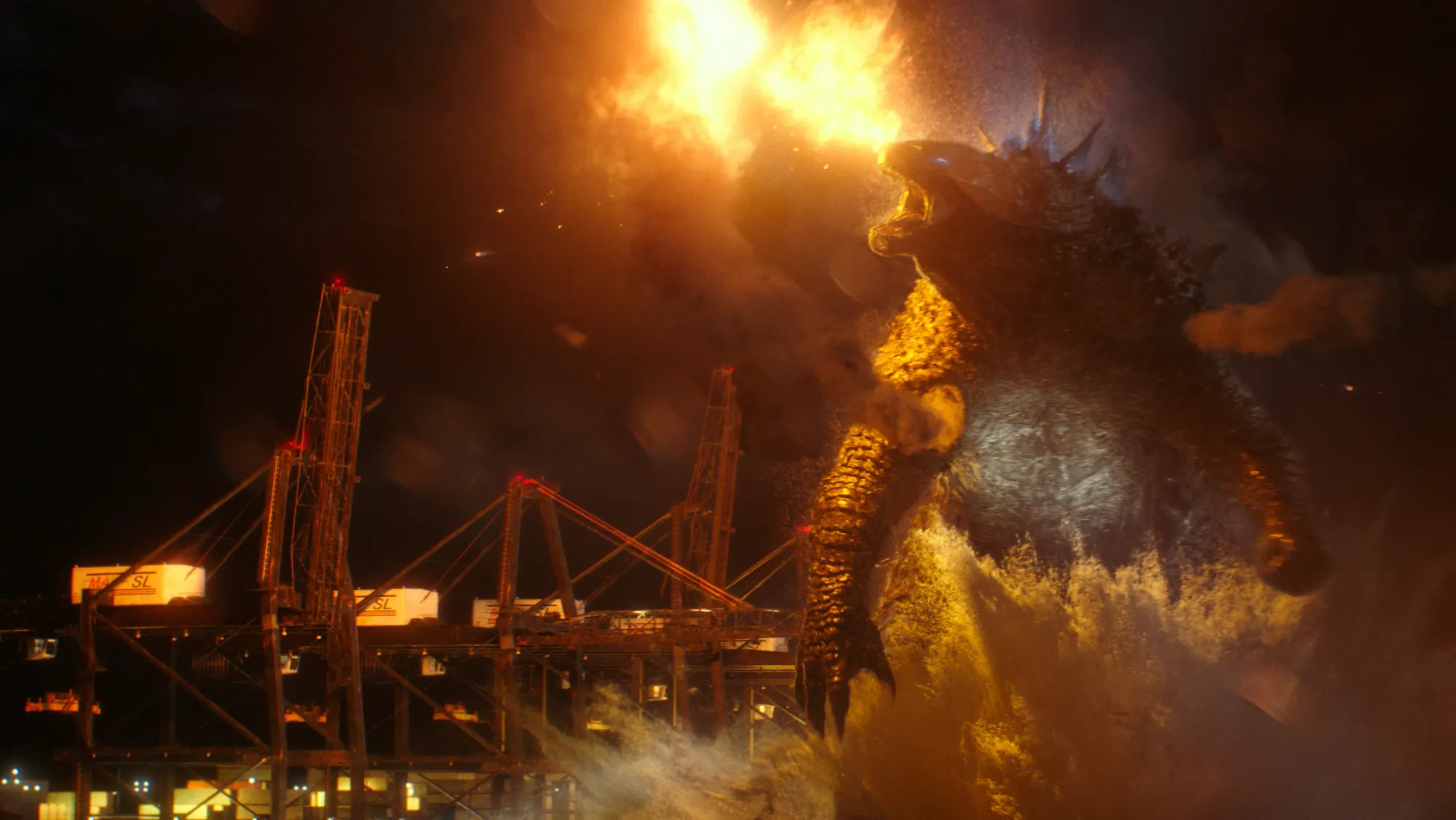
"Finding out what characters are thinking, the things that aren't said but experienced - that's kind of what I do in any other book I write," Keyes said of his process. "Especially if I start with an outline, just if the characters say this, and do that. The question I start asking is 'Why did they just say that? Did they regret saying that?' I'm not going to get the actors' visual cues - the things they're doing with their faces and their hands for the most part. But that's what keeps dialogue, when you add in stuff like that."
But don't think it's all talk: Keyes delivers great prose versions of the action sequences that got fans amped. And in an occurrence that's extremely rare for novelization writers, he had a chance to really hone his prose to what happened in the film. "I saw a late cut of the movie, pretty much identical to the final version, after I had already produced a draft of the book," he reveals. "This allowed me to fine-tune things in my second edit, and most specifically the visual details. It was a fantastic surprise. I like getting things as 'right' as possible, and that was a huge help."
The result, then, is a book that brings the action to life through vivid prose as well as, perhaps, serves a bit more than the actual movie does in setting up the people in the story. Maybe on paper is not the first way you'd want to check out a story where a huge monkey wields an axe - but the Godzilla vs. Kong novelization is a treat for those who were left wondering about certain dangling character threads on an otherwise comfortable sweater of an action movie.
The cutting room floor: One of Keyes' opportunities in writing out the story is giving a little more attention to the film's returning characters: Monarch scientist Mark Russell (Kyle Chandler) and his daughter Madison (Millie Bobby Brown). "[Mark's] fairly important to some of the things I've woven through the book," Keyes said. "And I had a lot of questions. [In the movie], while his daughter's running around, getting into trouble, he seems more or less unaware of it. And how does he go to Hong Kong without saying something to her, or figuring out where she is? A lot of this has to do with - I saw a much earlier version of the script, and they really tightened this movie up." (Director Adam Wingard confirmed some scenes with Chandler and actor Lance Reddick as Monarch's director, featured in the novel, were cut.)
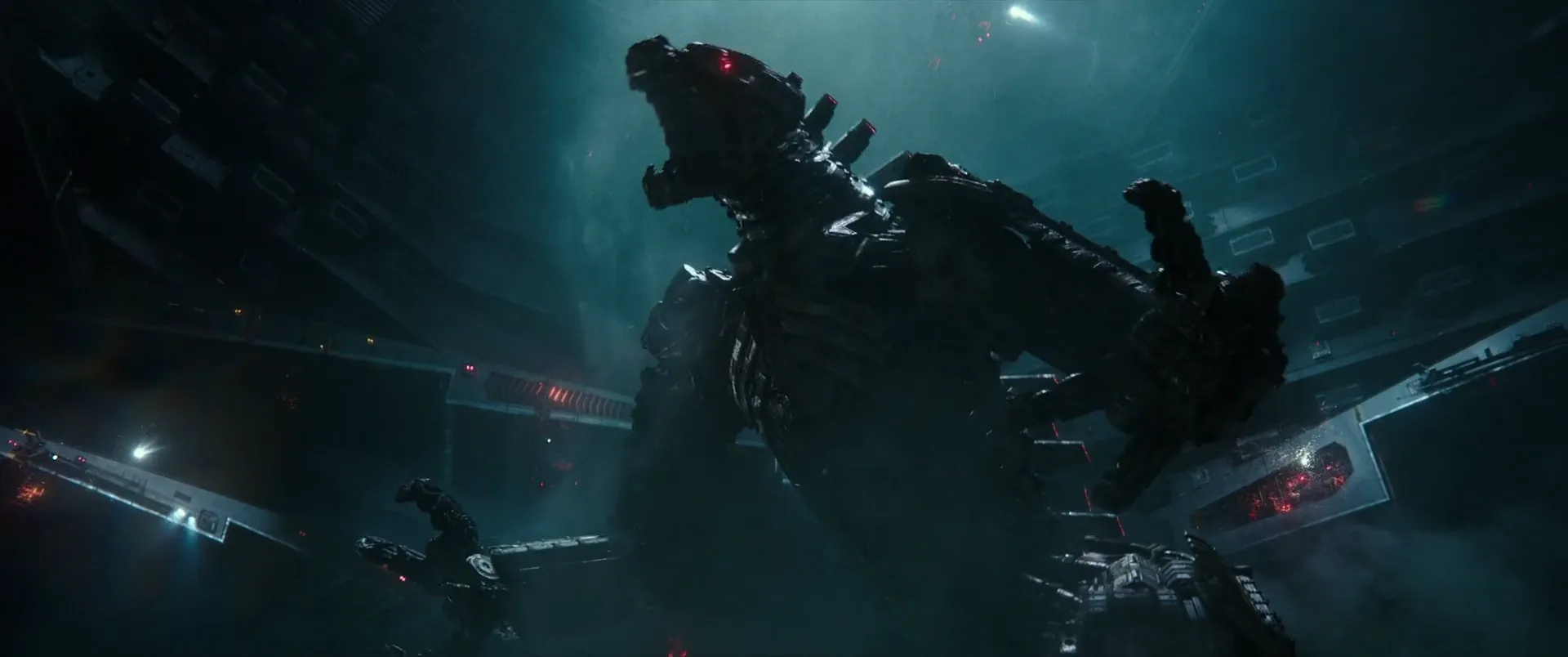
He attributes that, in part, to the COVID-19 pandemic. "I saw a much earlier version of the script when I began work on Dominion, but...by the time I started the novelization the script and movie version I saw were both awfully close to final form." (Two characters present in neither: Zhang Ziyi's twin Monarch researchers from King of the Monsters, a modern analogue to the sprites that herald Mothra in Toho's films. "I thought about writing her in," he admitted, "but there are complications there, and I felt there was so much to deal with in terms of the characters that were present, it was best to hew to those stories.")
The last word: If you're looking for a novelization that does what you want all good book versions of movies to do - flesh out the story and capture the joy of seeing the action in a different way (although you still have time to catch it for real on HBO Max) - Godzilla vs. Kong will be a monstrously good time.
The full interview with Greg Keyes
The following Q&A was lightly edited for clarity from a phone and e-mail conversation.
How did you get into tie-in writing?
My first five or six novels were original works. My first novel, The Waterborn. I wrote that, sent it off and sold it. I did write a few before that that never sold. But that was the first one, and it did okay. That was with Del Rey, and after I'd written six books with them, they started thinking of me as dependable. About that time, I'd moved to Seattle - [while there] they offered me Star Wars. I wasn't ready for that yet.
When I was younger, starting to read science fiction and fantasy, even though I'd read a lot of tie-ins - I read all of the Star Trek, all of Alan Dean Foster's books. At a certain point I'd developed that little thing where I just didn't want to do licensed work. It was still looked down on a little bit, I guess. Not much longer after that I was at World Fantasy Convention. Babylon 5 won an award for best television show or something like that. I was sitting next to one of my editors in the audience, and said "Man, that show deserves it. I love that show." He says, "Oh, really?" A couple weeks later he offered me Babylon 5. 'Oh, I'll do that, yeah!' I did Babylon 5, was offered Star Wars again, I did that.
I still write original books, but tie-ins - living in Seattle, you can't write a book a year and survive. My wife was in grad school, she wasn't making any money, so I had to up my output to two or three books a year. After that, it kind of became easy. The same editor, Steve Saffel, that was sitting next to me that day, is the chief acquisitions editor at Titan. Titan is where I've done a lot of this work the past few years.
Were there any novelizations or tie-ins that inspired you to want to get into this work?
I would say the first novelizations I read were the [James] Blish Trek books. The short stories. At the time we were living on the Navajo Nation in Arizona. We had no television, I had never seen Star Trek. These books were in the mobile library and looked like science fiction to me. I read as many as I could get my hands on. When I finally did see an episode of Star Trek, I was brutally disappointed. [laughs] The images in my head were so much better than the technology they had for making a television show back then. I guess the Alan Dean Foster books, I was reading concurrently with the comics and the cartoons coming out. At that point, we'd moved back to Mississippi, and had a television.
It was all in the mix. I was reading Highlands books as well, and Asimov. When I was a little bit younger, I was reading the Danny Dunn books, and the Tom Swift books, whatever I could get my hands on. Just yesterday, I was going through some newspaper clippings my dad had made. Several times, we were the library family of the year in the town I grew up in. Our picture would be in the paper. We were just always, always, always at the library. I'd just started reading in the "A"s and worked my way, all the way through each section.
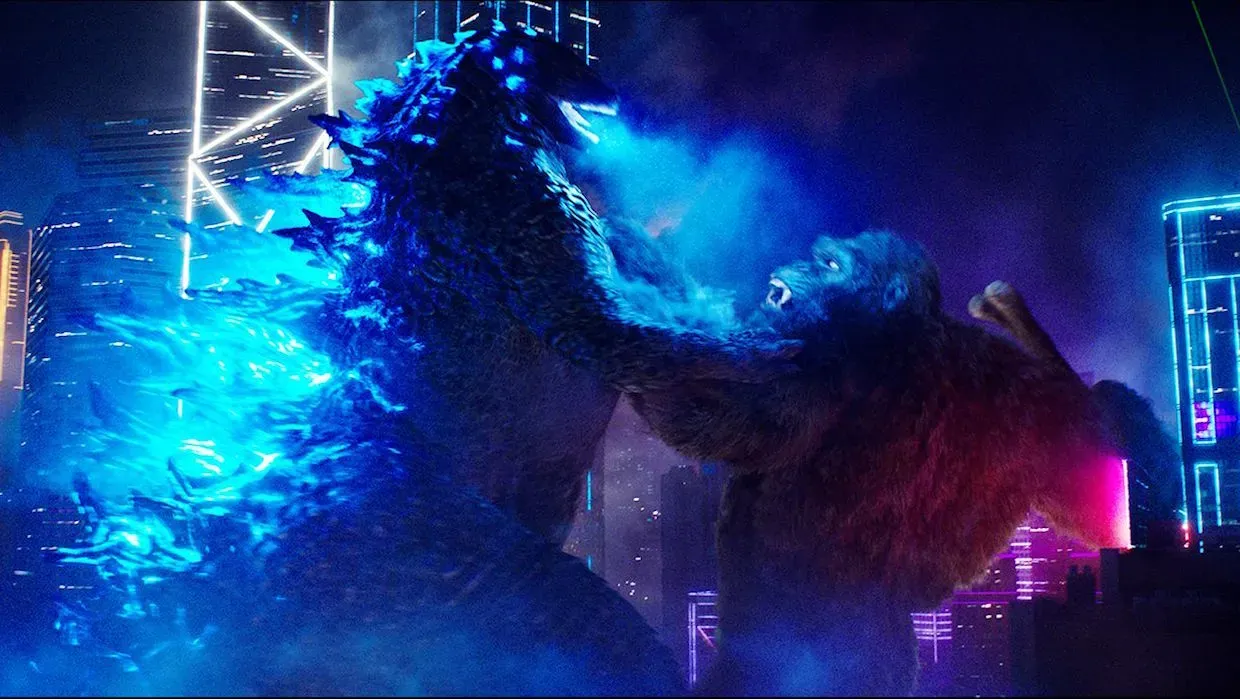
So the tie-ins were part of that mix. Especially when I was offered Babylon 5 - Star Wars was intimidating because there were so many books already, and I hadn't read most of them. I loved the movies, but I knew how the fans could tear you to pieces if you got something wrong. I didn't want to step into that water. With Babylon 5, I got to fly down and meet [show creator J. Michael] Straczynski and see them film an episode. I wasn't quite getting in on the ground floor - there had been a few books before that - but it seemed more manageable to me. When Star Wars came back along, I thought "OK, I'll give this a shot."
What is the novelization process like? Do you get the scripts first? Do you see the films first?
In most cases - I mentioned, too, I got to see [Godzilla vs. Kong]. That's never really happened before. I'm almost always just working from the script. Very often, I can't even have the script with me. I go into Burbank or wherever and go into a room with the script for four days and take notes on it. They make sure I don't have a phone to take pictures of it or anything like that. I've had that experience several times; it's not been in my experience with Legendary. I got to see Interstellar before making a final draft because they realized that some of the visual things had changed so much in the script, that it would be too different.
But I kind of think of it as: you got the script, you're now sort of the director. You probably will come up with a different product if you haven't seen the movie. I always like it, obviously when I'm able to add things. I've worked with properties that didn't want me to add anything at all, period. [laughs] The guys at Legendary, for instance, are like "Go crazy! See what sticks to the wall!" I've talked to the writers and directors, and they're always like "Well, try this." Those have always been a lot of fun just because of that. The fact is: a script is, what, 12,000 words, maybe? And they want an 85-90,000 word book. So you've gotta add something to that!
What are specific challenges of adapting visual media to prose?
One of the reasons people read novelizations - for instance, when I read the novelization of King Kong, I was in my mid-teens, early teens when that book came out. I wanted more, and the book did give more, whether that was parts that had been cut from the script or parts they were allowed to add.
At the same time, most people don't want it to be vastly different from the movie. Extra stuff? Yes, but the stuff that happens in the movie, they want to kind of see that in the same way, or a similar way. When I can't see the movie, I spend a lot of time getting whatever kind of visual stuff I can get: models, artist conceptions, screenshots. I watch the trailers. I'm trying to get the look of it right, at least in a general sense. I don't like to vaguely describe scenes. If you describe a scene in too great a detail, and you haven't seen what it looks like, it's gonna be more and more wrong from how detailed you make it. That's the thing I think I struggle with the most.
Finding out what characters are thinking, the things that aren't said but experienced - that's kind of what I do in any other book I write. Especially if I start with an outline, just of the characters say this, and do that. The question I start asking is "Why did they just say that? Did they regret saying that?" I'm not going to get the actors' visual cues - the things they're doing with their faces and their hands for the most part. But that's what keeps dialogue, when you add in stuff like that.
At some point, once I have a first draft based on the script, I let go of some of that. In general, the reader's going to be drawn into it, and they're going to visualize a certain way. If it's not exactly like the movie, it's gonna be okay. But if there's dialogue in the movie, I want that dialogue in the book. There might be a whole bunch of extra dialogue, but I want the dialogue that is in the movie to be in the book. That's not always the case, when you have a script that is not final - or even the final script does not necessarily reflect what happens.
There, I've often had people tasked to me - Legendary has a whole mythology division. Toho's got a chief Godzilla officer. People who have seen the movie will generally read my book and decide if something's too far off the mark, they'll point it out. I've been working with Legendary enough, we get along well enough that they've really started trusting me with visual assets. The fear is they're going to be leaked. I've done a lot of books now, but I've never done anything like that, so there's a level of trust.
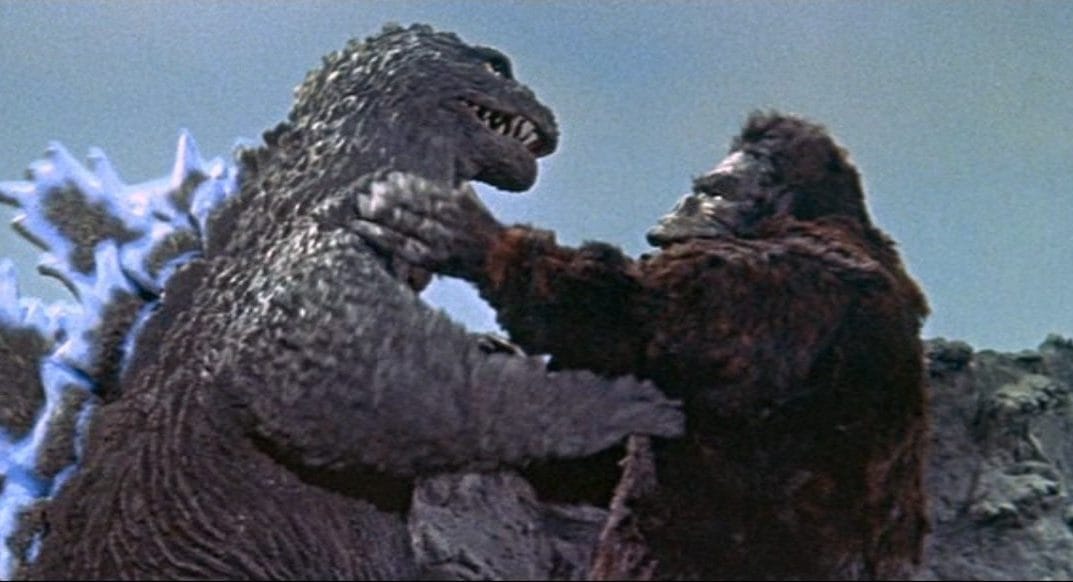
I'm glad that you bring all that up, because watching the movie - primarily built on 300-foot characters that don't speak - I was curious how you were going to treat the human parts.
I try to write from a limited point of view of a character. They're unreliable narrators, often - they don't necessarily know what they've seen. They've seen something, but they're not quite sure. There's no omniscience in any of my narration. While I do write a couple of short scenes from Godzilla and Kong's points of view - and that was something that was controversial, but they let me do it in Godzilla: King of the Monsters, and they liked it well enough that I just did a graphic novel that's completely from Godzilla's point of view. There are no humans in it, no thought bubbles or anything like that.
In the book, they're the ones that are seeing the action. Especially in this movie, it's not one character watching things, for the most part - it's us, the audience, watching it. But that's not how I write. So every scene in the book is going to be something that somebody is watching - one of those human characters is observing it happen. And for that to happen, you have to know what they're thinking about, how they're taking it, what their impression is, how this articulates with the other characters and what else is going on.
The human characters - some of them get very little time, like Kyle Chandler's character. He gets a lot more time in my book. He's fairly important to some of the things I've woven through the book. And that's notable, because he's a character you know from the previous film.
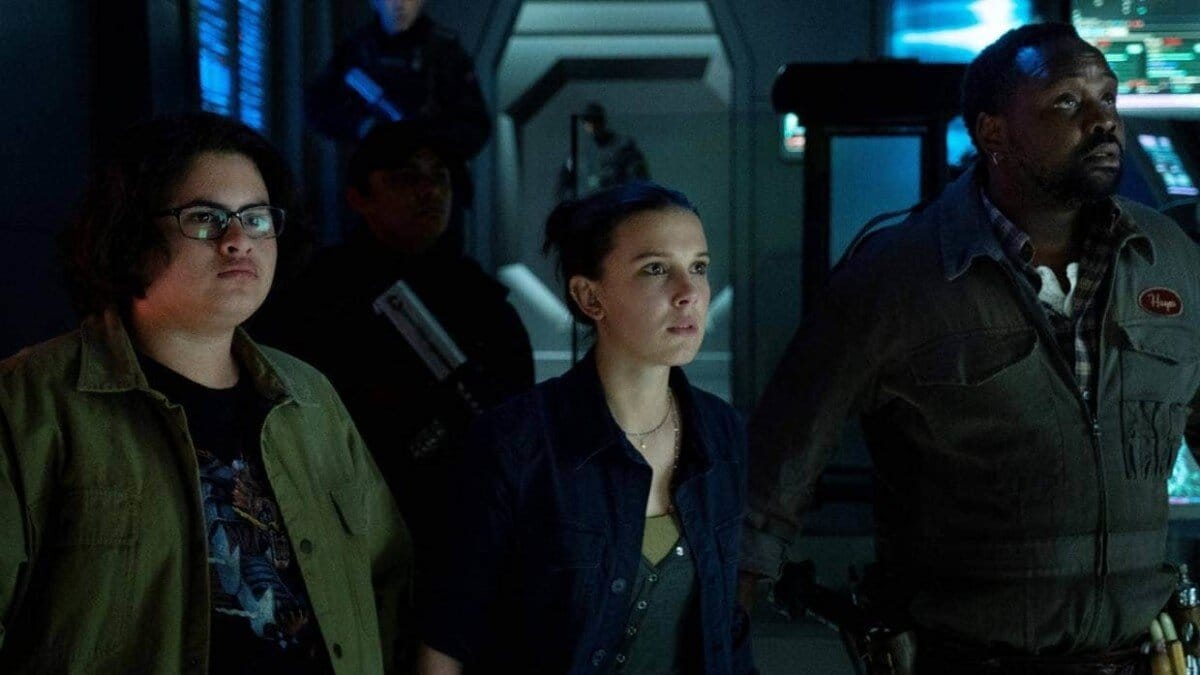
And I had a lot of questions. [In the movie], while his daughter's running around, getting into trouble, he seems more or less unaware of it. And how does he go to Hong Kong without saying something to her, or figuring out where she is? A lot of this has to do with - I saw a much earlier version of the script, and they really tightened this movie up. I really think they decided what they wanted to do with it and anything that didn't - and they had time, right? Everybody had more time to do this kind of thing because of the pandemic. And so I think the movie is probably a better product than it would've been if they'd released it a year earlier. In fact, I don't doubt that at all.
But as a story, there are lots of questions, and that's what a novelization does - answers those questions. What was Mark doing this whole time, and why was his daughter able to do what she did. Especially after the last movie, where she nearly got stomped! You'd think he'd be a lot more paranoid about keeping an eye on her!
The book does a great job of fleshing out the human characters' motivations, particularly some that were a tad oblique in the film (like Bernie, the Apex conspiracy theorist). Were there clues in the source material you were given or did you come to your conclusions naturally?
There is very little in the final script that wasn't in the movie, but there are clues to motivations throughout. Before writing, I had an in-depth Zoom meeting with the creative team at Legendary in which we discussed these matters, including things that had been cut from earlier scripts. In general, ideas about the backstories and motivations of these characters already existed, but they had been streamlined to produce the movie we all saw. I think this worked very well in the movie context, but in a novel there is time and space to expand all of these stories. The commitment to that has made working on both Legendary novelizations both interesting and fun for me.
You also write a lot of tie-ins that are not novelizations. What are the differences in writing those versus novelizations? Do you get style guidelines?
That varies depending on who I'm working with. When I was doing Babylon 5, I was supplied with outlines by Straczynski. He wrote them - they were short outlines, a big paragraph. But he had a fairly good idea of what he wanted these books to be about. And then I believe I wrote kind of expanded outlines of how I would do it, he'd say "OK," and I started writing.
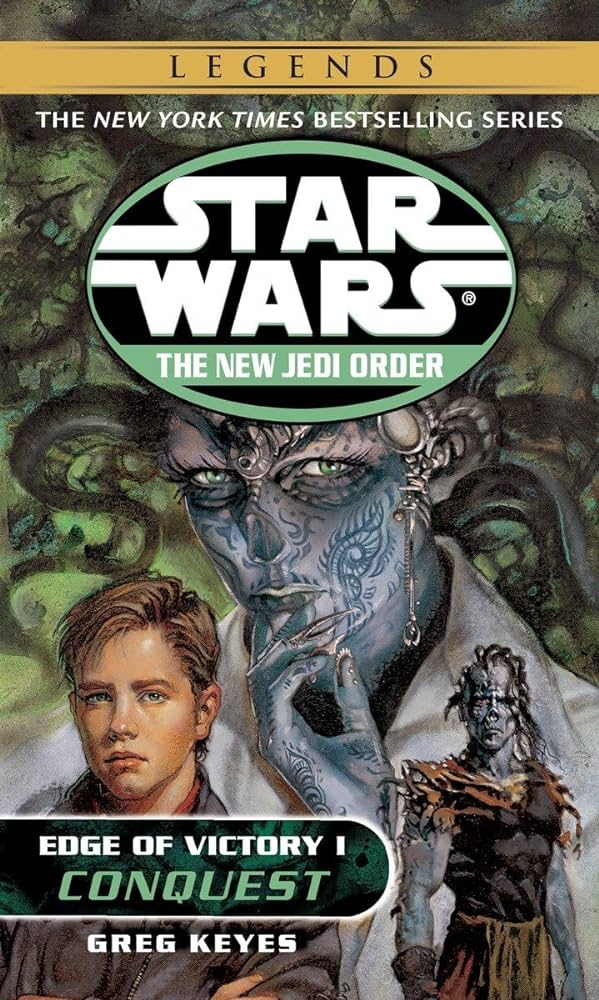
Star Wars was different again. They said, "Here's the story arc" - the Yuuzhan Vong, the New Jedi Order - "here's where your stories go. Now tell us how you want to do that." So there's some back and forth between the studio, my editor and me until we hammer out a decent outline that makes everybody happy. When I wrote for The Elder Scrolls, they asked me to supply them with, I want to say, 10 very short treatments. And then they'd pick two of those for me to expand into larger outlines, and they'd pick one of those.
So there's that kind of process, where we're hammering out exactly what I'm going to write. That can take awhile - people in the film business are often pretty busy, and people in the game industry are working on a different timeline for writers. Because they're thinking in terms of years - it can take five, six years to develop a game, and I've got to write a book, often, in few weeks or a couple of months at most.
Anyway, there's that kind of developmental process where I'm going back and forth with the creators or caretakers of the property, and we'll work out a story together that I'll do. Then I start writing, and inevitably questions pop up. That's just kind of a matter of access. With Babylon 5, the first thing I did like this, I had complete access to his assistant, Avery. If I had a question, I just called her, she'd run and get the answer and call me back. Now I mostly do that kind of thing via e-mail.
Sometimes - especially since the Zoom thing started, I have a big conference call with a bunch of people at Legendary to sort of hammer out what I could and couldn't do with Godzilla vs. Kong. That's sometimes the case with a tie-in, too. I was on this massive conference call when I was doing the Planet of the Apes books, working out what I was going to do, what the comics were going to do - who's going to get what piece of this pie. It's usually something including two movies together. Sometimes it can be a tangent, but usually it's something happening between the two movies. Which is what the graphic novel I just did is, as well.
Those books are more like writing one of my own books, I guess. I have a greater degree of control with the story, but I'm still mindful that I'm working inside of a framework that's been set by somebody else.
What are the gratifying parts of novelization/tie-in writing?
The most gratifying part of it is when the people who created this world, this universe, these characters - when I feel I've done a good job and then they agree. What I'm aiming for there - in the case of tie-ins is to create something new but fits - in the case of novelizations, I want it to make the movie experience better. I want someone that couldn't see the movie or hasn't seen the movie to get something of that experience, as much as they can from the book. That's the best part of it.
The worst part, sometimes, is working by committee, in which the parties themselves don't agree with each other. [For Godzilla] there are two big entities I have to deal with. One's Legendary, and one's Toho. They have to decide between themselves what they can do. But that all works very well - there's not a problem with that. Everybody knows it's something by Godzilla, and we've just gotta do it - or not do it.
But I've worked with a couple of books where there were three or four distinct entities involved that did not all agree with each other. And as a result, I've had to rewrite books almost completely, even after we agreed on the outline. And then I write according to that outline, and somebody new reads it that didn't read the outline, or has forgotten what the outline said. And they're like "No, no, no, no, none of this works, you have to go back." And it also often has to be done in an extremely tight time frame. Because once you get to that point, you’re not very far from the publication date. And the dates on these things usually tie to release dates of the movie or the game, or whatever. It can be pretty stressful.
Fortunately, it has not happened to me often. But having to, more or less, completely rewrite a book is not fun. I had to do that with one of my own books, by the way. [laughs] What happened with that one - the first of my Age of Unreason books; my editor liked it, her boss liked it. It was accepted, it was on its way, it was being edited - and then marketing said "No, no, no - this book can only be so thick. It can only be like an inch and a quarter thick." Because it was a trade paperback. So we need to cut 250 pages out of this. They just gave it to a line editor and he went through and cut 250 pages out of it - and then they gave it back to me to fix. It was like speaking to someone you know really well who's had a stroke. But that's the only time it ever happened to me, with one of my own books. After that I said, "Look, if anybody is gonna cut 250 pages out of one of my books, I will do it." [laughs] Just give it back to me and tell me to do it, or tell me from the beginning it can only be this thick and I will make it that length.
So that's often the most frustrating part: having to work with multiple parties that are either not communicating with each other well, or just don't agree.
Do you find yourself revisiting your writing or the films afterward to see the overlap between your style/vision and theirs?
I usually do watch the movies. The only novelizations I've done are two for Legendary and Interstellar. Interstellar was one of those projects they wouldn't let me have the script. I had to go sit in Christopher Nolan's office - he wasn't there, I didn't meet him - but I sat in his office for four days with the script. He also wanted fairly minimal changes: he wanted his vision preserved, and didn't want me adding a whole lot of extra stuff. I added, obviously, some things. And that one, again, they did eventually let me see the movie, even though it was far down the road. I remember thinking I got most of this right already.
But here's the funny thing about when it's different: I didn't agree with it. [laughs] I was like "No, that's not right." And of course it's right! His vision has precedence over mine. But I've done a version of this, and I like my way better than that. But that's just kind of a knee-jerk reaction - I thought it was a great movie. In the tie-ins there's a similar thing going on - I did a tie-in for Pacific Rim set between the two movies. One thing I didn't quite gather when I started that book was how less edgy [Pacific Rim: Uprising] was going to be than the first one. They were trying to make it for a broader audience. And so I kept doing things to these characters and they're like, "You can't do that to this kid! You can't do it!" And I'm like, "Why not? It's a bad world. Things are going wrong." "No, no, you can't do that, though."
And in terms of the look - I mean, I could imagine some of it. Especially when things are set in a "real world" setting, there's a lot you can do with Google Street View to figure out what things look like, if it's an outdoor thing. And they had set that dome in a real place in China, sort of - even though China doesn't have street view.
And that's fascinating, reading about your work - or anyone's, in general - you're usually writing about things that are fantastical. And you yourself may not be an expert on the ins and outs of interstellar travel or computing - but I admire when any novelization makes these complex, implausible things sound believable.
I was an anthropology major and a Ph.D. student. I never finished, but I got as far as writing my proposal, defending it, doing my orals. So I'm used to doing research. I know how to do it - I did it for a huge chunk of my life. And it's much easier, now, to do it fairly quickly if you know what you're looking for - if you have enough knowledge to know, "Oh, that's an electromagnetic thing."
Also, honestly, I read almost all nonfiction. I don't read very much fiction, because I'm looking for stuff to in nonfiction apply. And I do mostly science reading - I've read books about singularities and such my whole life, actually.
I feel like I've got the space and knowledge that allows me to at least see where my gaps are. Sometimes I fill those gaps in with people I know that know more about that. An example would be when I was writing the Planet of the Apes books, there's a doctor who works in the emergency room. I know nothing about working in an emergency room, so I talk to people that work in emergency rooms. My niece actually does a good bit of that in Chicago.
Sometimes, especially with these books - especially with Godzilla vs. Kong - I get so excited about some of it, having some of the characters speculate about the evolutionary origins and relationships. There's one scene where I'm talking about convergent evolution - how you can have a marsupial that looks like a mole and a placental mammal that looks like a mole. They'll look nearly identical, but the placental mole is more closely related to an elephant or a whale than the marsupial mole. I went on for pages about this. [laughs] My editor there was like, "I think we should cut this down a little bit." Harry Turtledove used to call that: "I've done my research and now you're going to pay for it."
That's the kind of thing I most often find myself cutting out of books: things I just get really excited about and go on about a little bit too long.
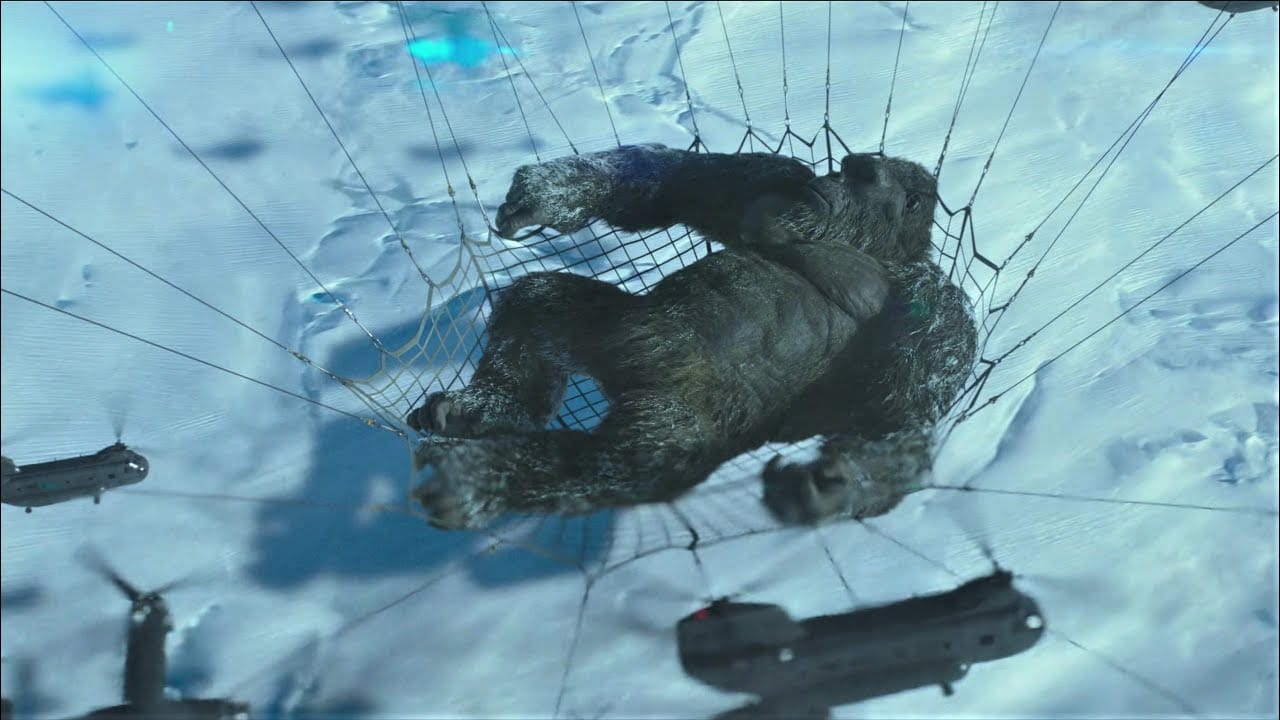
But it's funny, because I think readers go for that stuff. I've seen friends get excited about the title sequence, where all the newspaper clippings and stats and Latin names of these Titans are on display, and your style is well matched for that.
But of course, if they've already got their own theories and I contradict them, that can be a problem. It's funny: just yesterday this guy from Columbia contacted me. He wanted to know: in King of the Monsters, after Godzilla gets back from the nuke, is he twice as strong? Ten times as strong? Fifteen times as strong? I never thought about it that way - it wasn't how it was presented to me. He's just stronger. And in fact, that's exactly the kind of thing Toho wouldn't want you to do, to place some kind of numerological assignment. Like you're rolling dice in D&D.
But I get a lot of questions like that! I think a lot of them are trying to settle arguments amongst themselves. One was like, "Do you think Godzilla was winning the fight with Ghidorah before Ghidorah charged back up?" I don't know, what do you think? You saw it! I knew how it was gonna end the entire time. [laughs] But I don't blow them off - I answer them as honestly as I can. Sometimes I have to say "I can't talk about that."
Well then, I want to skip ahead to this question: did you have a hope for the outcome out of Godzilla and Kong's fight? Adam Wingard, the film's director, had said there'd be a definitive winner.
It's hard to say. Of the two, the one, honestly, closer to my heart is Kong. I have watched every Kong movie. I watched them as a child whenever I could get a hold of them. I watched the Jackson version six times. I'm a huge Kong fan, and a big Skull Island fan. It was Skull Island - when I saw that, I called my editor and said, "If they're looking for people to novelize or write tie-ins for MonsterVerse, I want in." And I've never done that - I've always been asked. Fans are always asking "How did you get your fanfic published?" Well, it doesn't work that way. Usually you're asked to do it, because you've shown that you can write a book. But that one I actually said, "Put in a good word for me, because I'd love to work on that." I loved Skull Island, I thought it was great.
I think had a sneaking suspicion, even when I started reading [the script], that the way it was gonna turn out was the way that it did, that there'd be some other...But I think what [Adam's] talking about is it's clear that there was a point where Godzilla could have killed Kong, and it was over. There is a definitive winner in that fight. In both fights, Kong loses.
In your experience, have you found there to be a goal of getting extra material into a novelization?
It's highly variable. I think in many cases, the money that a studio makes from the tie-in books is not very much, compared to what they make off of everything else. In some cases, I don't think they care that much. They've been approached by a press like Titan to publish a book based on this property, they're like "Huh, OK, fine." But everybody I've talked to at Legendary, they all love tie-ins. We had a big discussion about the first tie-ins we read, why we liked them. They're real fans of it, and they're like "Go crazy, let's put a whole bunch of new stuff in there."
For Interstellar they really didn't have that same interest. They really wanted to hew very, very close to the movie. I could obviously have the characters thinking about things, and expand the view of the characters a little bit. But they didn't really want me adding scenes, or a lot of scientific speculation that wasn't already there. That was kind of a different experience. But with the tie-in stuff, it's all about adding nothing but extra material, just staying true to the source.
This is not your first Godzilla book. Did you find getting back into that world easier or harder or different in general?
It was easier. I still have a pretty fresh memory writing Godzilla: King of the Monsters and I was obviously aware of all the stuff I'd added. And in between I wrote Dominion, the graphic novel. I was basically never out of touch with these guys. For the past three or four years, I've talked to or e-mailed one or more of them at least once or twice a month. And we've had a number of conference calls hashing things out, trying to figure out what we should do here. And they're very organized - they have a whole mythology team. People keep asking me about the graphic novel - it's got some Titans in it we haven't seen before. They're like "So what was it like inventing these Titans?" I say, "You don't think they let me invent a Titan!" [laughs] There are couple of sub-Titan monsters I got to invent, but they've got that worked out pretty well.
A fair chunk of the Titan lore throughout can of course be found in the two graphic novels, one of which you wrote and the other written by Marie Anello. Did you compare notes as fellow authors or was it Legendary doing most of the lifting to bring the stories together?
I never met Marie until we did an online panel about the graphic novels, but at my request Legendary provided me with her script for Kingdom Kong so I could work details from it into the novelization. Her story was crucial to many key points in the novel - the storm coming ashore, the destruction of the Iwi people, the earlier Hollow Earth entry attempts. In doing novelizations, I feel it's an important part of my job to help all of the tie-in material work together.
Just to reclarify, did seeing an early cut of the movie affect your writing? I thought the way you wrote visual detail connected really well to what the film ultimately delivered but wasn't sure how closely getting to see the film aided that.
I saw a late cut of the movie, pretty much identical to the final version, after I had already produced a draft of the book. This allowed me to fine-tune things in my second edit, and most specifically the visual details. For security reasons, this almost never happens, and they dropped it on me without telling me what it was beforehand. I thought I would be getting the usual visual assets - stills, artists conceptions, storyboard material, that kind of thing. It was a fantastic surprise. I like getting things as "right" as possible, and that was a huge help. I only had it for two hours, just long enough to watch it, but that was more than enough.
Was there anything interesting in either the script or the cut you saw that didn't end up in your book? I'm thinking particularly how there were reports of Zhang Ziyi reprising her role from King of the Monsters, but curious if there was anything else.
I saw a much earlier version of the script when I began work on Dominion, but I didn't work from that. Because of the long delay due to COVID-19, by the time I started the novelization the script and movie version I saw were both awfully close to final form. The Zhang Ziyi character was no longer present in either, for instance. I thought about writing her in, but there are complications there, and I felt there was so much to deal with in terms of the characters that were present, it was best to hew to those stories.
Did Warner/HBO's release schedule plans have any effect on how this book in particular was written? [Note: the book, initially scheduled for May, was able to move to the week following Godzilla vs. Kong's HBO Max debut in late March.]
It's more for the publisher. The book was done: I finished writing it sometime in November, or early December? I turned in the full manuscript in December, and I started writing it in November. It was something I wrote pretty quickly. During that period over the Christmas break it went to various people to read, including Legendary and Toho. They came back with a bunch of changes. After that things sped up a lot. All of a sudden the publisher realized we had two months less than we thought we had.
My part at that time was more or less done. The only way it really affected me is I had to turn around changes much more quickly than I might have had to otherwise. But I'm actually pretty good at that. So I turned in the last set of changes, got essentially galleys a week later, and had to have those corrected within five days. Where it may show in the book - I got the book yesterday - is proofreading. They've got a pretty good team there. The copy editor was pretty phenomenal, I thought. She found a couple of mistakes I made that were kind of embarrassing - but they didn't make it into the book.
Also, there's a lot of legal issues that have to be worked out. I tend to put quotes from things at the beginnings of chapters that are from real sources. If those are not in the public domain, that can really be a problem. I try to vet all of that myself before I do it, and in general I get it right. But sometimes copyright law is a little different.
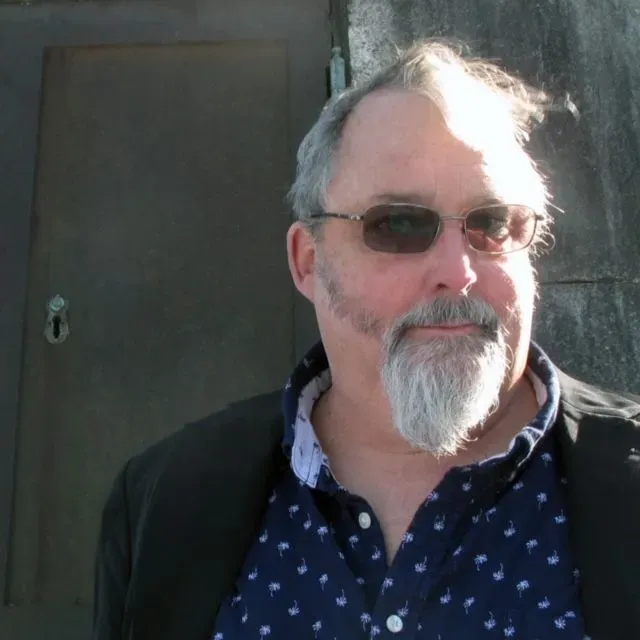
Do you have any thoughts on digital availability of tie-in works?
I guess I really hadn't thought about the fact that there don't seem to be digital versions of these things. There's audiobooks for all of them. Every original book I've written - they're all available digitally. As an author, I make way more on digital sales than paperback sales. I remember watching that happen slowly. And of course, Richard [Curtis, my agent] was on top of that from day one.
So I watched my royalties change in composition. Of course, for most of the licensed stuff, I don't get royalties. Alan was in somewhat of a different position in a different time. I did, for Star Wars, get something like a 1.4, 1.5% royalty. All three of those books were published in the late '90s, early '00s. All three broke onto The New York Times' best-seller list - but I've never seen any royalties for them, because 1.4 is a really small number, compared to the 7-12% I get from my own books. All of which I get some level of royalties from.
I have no idea why they'd hold back doing digital versions of tie-in books - what I will tell you is it's pretty rare these days for me to get any sort of royalty agreement. I write the books, I spend the money, and we're done. Once it gets to the state of being published, I've generally moved onto something else. While I was writing the Godzilla books and the graphic novel, I was also writing two other books of my own. I turned my attention back to that. I would be worried if somebody didn't make an e-book of one of my original works, because I know I get most of my royalties from e-books. I want that to happen. [laughs] I do think it's more how people consume - I think it's only gonna keep moving in that direction. And if you don't make an e-book of your book, someone will.
I think it may go, again, back to the big studios don't see this as a huge issue in terms of money. They see this as a way of promoting their movie, maybe. I'm just guessing here, just thinking about what books tend to make. Even when it sells pretty well, I don't think any of these - unlike the Star Wars books - I can't remember, recently, any of the tie-ins I've worked on hitting The New York Times list. This one might, just because the movie was so big. It's funny - Richard texted me the other day, because the Times had just done a review of the movie. He said, "I hope we got royalties on this!"
Is there anything you'd like to add?
I'll finish with one story I like to tell. When Amazon reviews started, all of us were obsessed with them. We're reading these reviews from readers. I almost don't do that anymore, partly because of this experience. When I did my first Star Wars book, I would say 15% thought I was the best Star Wars author ever, and maybe about the same percent thought I was the very worst Star Wars author ever. and everybody else was like, "He's OK. He's fine. He did the job." One of the ones who thought I was the very worst Star Wars author wrote this review that said that I should never ever be allowed to write another Star Wars book. He knew I was already going to write two more, so he would buy them, because it was Star Wars - but he didn't think I should ever be allowed to write another Star Wars book. You know, if I could just get that sort of brand loyalty for myself! [laughs]
That really says something about a certain kind of tie-in reader: he's gotta have them even though he thinks they suck. For some reason or other that speaks to me the contradiction of especially something like Star Wars, that people are so involved in. As witnessed by some of the really shitstorm aspects of the Disney movies. And some of the fan reactions went way beyond the realm of what I'm talking about, into real toxicity.
People are really starting to find me on social media right now to answer these Godzilla questions. But I haven't run into anything remotely as toxic as that. I've got my fingers crossed.
